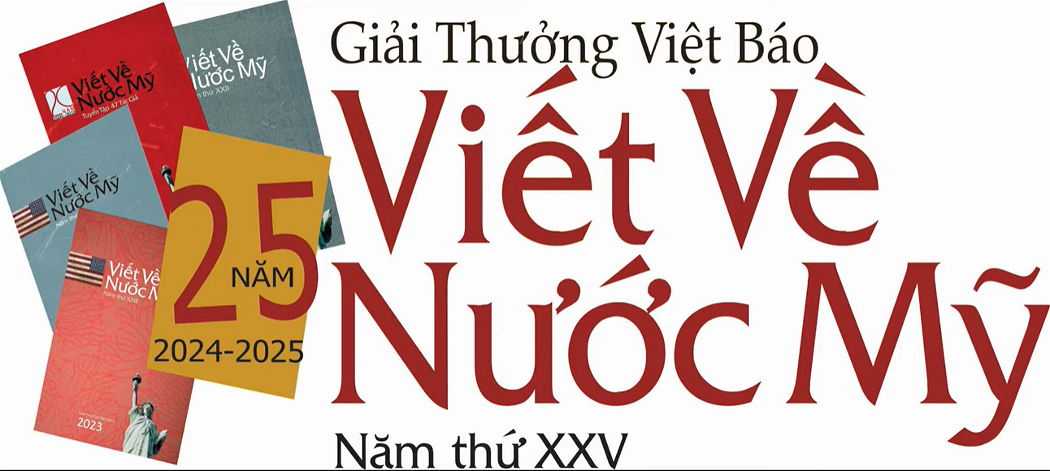
Công Đức Chép Kinh
Quảng Tánh
Trong các việc làm phước thiện thì biên chép và ấn tống kinh điển luôn được khuyến khích và ca ngợi, vì lợi lạc của nó đối với người làm phước thật nhiệm mầu, không thể nghĩ bàn. Thời xưa, khi các phương tiện ấn loát còn thô sơ thì chép kinh thành nhiều phiên bản để tụng đọc là hình thức phổ biến.
Ngày nay, hình ảnh đẹp đẽ và cổ kính của người ngồi chép kinh không còn nhiều nhưng những người phát tâm ấn tống, cúng dường băng đĩa, kinh sách Phật giáo nhằm truyền trao giáo pháp trí tuệ và từ bi đến với mọi người thì không thiếu. Bởi việc làm này bao hàm những giá trị cao cả, giúp cho mình và người đều hướng thiện, tạo ra phước báu vô lượng.
Truyện Sự tích cứu vật phóng sinh kể rằng: “Vào đời Đường, có một người tên Phan Quả, ở tại kinh đô. Lúc còn trẻ, tính tình hiền lành nhưng khi lớn lên nhờ biết chút ít võ nghệ nên xin được một chân tiểu lại ở tại huyện đường và thường giao du với một số thanh niên đồng lứa rồi nhiễm theo thói ác.
Một ngày kia, trông thấy một con dê lạc đàn đang ăn cỏ và lá cây tại bãi tha ma, Phan Quả cùng bè bạn liền bắt dê đem về nhà. Dọc đường, dê cất tiếng kêu be be, sợ chủ nó nghe được, Quả hoảng quá bèn cắt đứt lưỡi dê rồi tự cho mình có trí hơn người, xử lý công việc một cách gọn gàng, độc đáo.
Sau khi dắt dê về tới nhà, Quả cùng bè bạn giết dê bày tiệc rượu nhậu nhẹt vui vẻ với nhau. Mọi chuyện vẫn bình thường cho đến một năm sau, Phan Quả đột nhiên phát hiện lưỡi mình dần dần teo lại, nói năng ngọng nghịu. Quả biết mình mắc bệnh kỳ quái, mang phải ác tật, liền xin từ chức tiểu lại ở huyện đường.
Quan huyện lệnh Phú Bình bấy giờ là Trịnh Dư Khánh nghi Quả có điều gì dối trá bèn khám nghiệm thì quả thực, lưỡi y teo lại chỉ còn nhỏ xíu như hạt đậu. Quan huyện liền hỏi nguyên nhân, Phan Quả dùng bút kể lại đầu đuôi câu chuyện, biết vậy, quan huyện liền bảo thuộc hạ của mình làm phước, chép kinh Pháp Hoa. Quả phát tâm kính tín, giữ gìn trai giới, siêng năng tu phước, chép kinh. Sau một năm, lưỡi của y dần dần bình phục lại như trước.
Phan Quả thấy thế vui mừng khôn tả, vội vã đến quan huyện trình bày tất cả sự việc và quan huyện cũng vô cùng hoan hỷ liền thăng chức cho Quả…”.
Chép kinh là một hình thức công phu. Muốn chép kinh trước phải đọc, ghi nhớ rồi sau đó mới nắn nót lời kinh. Chữ kinh phải ngay thẳng, chân phương và rõ ràng. Muốn được vậy, người chép kinh phải toàn tâm toàn ý với công việc. Chính nhờ quá trình tập trung đó nên ý kinh bùng vỡ, người chép kinh ngộ ra những thâm ý mà so với khi đọc tụng hàng ngày khó có thể nhận ra. Đồng thời nhờ chép kinh mà chuyển hóa được ba nghiệp, thân tâm trở nên an ổn, nhẹ nhàng. Đây cũng là cơ sở cho sự hình thành phước báu, công đức chép kinh.
Trong cuộc đời của mỗi con người, có lẽ không ai tránh khỏi những sai phạm, lỡ lầm. Có những sai phạm dẫn đến quả báo hiện tiền và có những lầm lỗi đang kết trái đắng ở tương lai. Tất nhiên, đạo lý ở đời thì “nhân nào quả ấy” và muốn cải thiện những điều xấu ác đã làm chỉ còn cách là tích cực làm thêm những điều lành. Chép kinh, in kinh là một trong những điều lành ấy.
Chuyện của Phan Quả là một điển hình. Vì theo bạn xấu mà tạo nghiệp ác nên bị quả báo hiện tiền. Nhờ gặp bậc thiện tri thức chỉ cho cách tu tập sám hối bằng cách biên chép kinh Pháp Hoa mà bạt được nghiệp chướng bệnh tật nan y lại còn được thăng chức. Cho nên, những ai đủ phước duyên ấn tống kinh pháp thì nên thực hành và nhất là nên “hạ thủ công phu” tự tay biên chép một bộ kinh nào đó để làm kỷ niệm trong đời và cũng để cảm nhận sự chuyển hóa nhiệm mầu của công đức chép kinh.
Quảng Tánh
091.8.114.252
http://www.thichquangtanh.com/
Nguồn:
https://thuvienhoasen.org/a15456/cong-duc-chep-kinh
.... o ....
Merits of Hand-copying the Scriptures
Author: Quảng Tánh
Translated by Nguyên Giác
In the act of performing good deeds, the practice of hand-copying and publishing sutras to distribute is always encouraged and praised. This is due to the incredible and unimaginable benefits it brings to those who engage in such meritorious actions. In ancient times, when printing methods were still rudimentary, hand-copying sutras into multiple versions for recitation was a popular practice.
Nowadays, there are not many beautiful and ancient images of people sitting and copying sutras by hand. However, there are many people who print and copy Buddhist tapes and books for free donation, in order to transmit the teachings of wisdom and compassion to everyone. So, such actions carry noble values, leading donors and recipients towards goodness, and creating immeasurable blessings.
The story "The Legend of Saving Animals and Releasing Them Back into the Wild" says: "During the Tang Dynasty, there was a man named Phan Quả who lived in the capital. When he was young, he had a gentle personality. However, as he grew up and acquired knowledge of martial arts, he sought employment as a petty officer in the district. He frequently associated with other young men his age and eventually succumbed to bad habits.
One day, while at the cemetery, Phan Quả and his friends noticed a stray goat grazing on grass and leaves. They quickly captured the goat and took it back home. Along the way, the goat started bleating, which made him afraid that its owner would hear it. He was so frightened that he severed the goat's tongue, believing himself to be more knowledgeable than others. He executed the task with precision and in a distinctive manner.
After bringing the goat home, Quả and his friends slaughtered the animal and celebrated with a joyful drinking party. Everything was normal until, a year later, Phan Quả suddenly discovered that his tongue was gradually shrinking and his speech was becoming slurred. Knowing that he had a rare illness and a debilitating condition, he promptly resigned from his role as a junior clerk in the district hall.
The district official of Phú Bình at that time, Trịnh Dư Khánh, suspected that something was wrong with Phan Quả. He examined him and discovered that his tongue had shrunk to the size of a bean. The district official immediately asked for the reason. Phan Quả used a pen to narrate the story from start to finish. Knowing this, the district official promptly instructed his subordinates to perform acts of merit and hand-copying the Lotus Sutra. Phan Quả developed a strong faith, observed the precepts, diligently cultivated blessings, and meticulously hand-copied sutras. After a year, his tongue gradually recovered to its previous state.
Phan Quả saw this and felt indescribably happy. He rushed to the district official to present all the facts, and the district official was also extremely pleased and promptly promoted Qua…”
Copying sutras by hand is a meticulous practice. If you want to copy a sutra, you must first read and memorize it, and then write down the words of the sutra. The sutra's text should be straightforward, simple, and easily readable. To achieve that, the scribe must be wholehearted and devoted to their work. Thanks to the process of concentration, the meaning of the sutra becomes clear, and the person transcribing it realizes profound insights that are hard to grasp during regular recitation. At the same time, through the process of hand-copying the sutras, the three karmas can be transformed, resulting in a peaceful and gentle state of body and mind. This is also the basis for the formation of blessings and the accumulation of merit through hand-copying sutras.
In every person's life, it is inevitable to make mistakes and have regrets. There are mistakes that result in immediate consequences, and there are mistakes that have long-term negative effects. Of course, the moral principle in life is that "what goes around comes around." If you want to rectify the bad things you've done, the only way is to actively engage in more good deeds. Hand-copying and printing sutras are some of the good things.
Phan Quả's story is a typical one. Because associating with negative friends leads to negative consequences, retribution is inevitable. Thanks to meeting a wise man who taught him the practice of penance through hand-copying the Lotus Sutra, he was able to overcome the karma of an incurable illness and even receive a promotion. Therefore, those who are fortunate enough to print sutras to donate the teachings of Buddha should practice and especially "get down and do it" by personally hand-copying a certain sutra as a souvenir in life. This practice allows individuals to experience the joy of the meritorious and miraculous transformation that comes from hand-copying sutras.
Quảng Tánh


